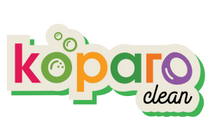
Phenyl vs. Floor Cleaner: Which One Should You Use?
For Indian families, the topmost priority is having clean and hygienic floors, and the burning question is whether to use phenyl or floor cleaners. Despite their commonality in both being disinfectants, the two have differences. To assist you come up with a good choice, we will talk about at the ingredients, effectiveness, and pros and cons of phenyl and floor cleaners.
Understanding Phenyl
Phenyl is a type of disinfectant liquid which has phenol as the active element. It is commonly used as a means to tidy up and disinfect surfaces, particularly floors. Many types of microorganisms, such as fungi, viruses, and bacteria are dealt with by this liquid, making it efficient. It operates by bringing down the surface tension thus enabling it to meet dirt together with dust on the floor, forming compounds that can be easily washed away. This, therefore, makes Phenyl an ideal cleaning agent for disinfection of floors because it is densely concentrated and penetrates deep into the surfaces being cleaned.
Phenyl can cause harm if it is not used correctly. It can irritate the skin and eyes or cause breathing difficulties. Also, it has been seen that improper usage of cleaning products might cause fatal accidents and health conditions.

Understanding Floor Cleaners
Floor cleaners are of various formulations usually made with pH-neutral which contain surfactants, fragrances, and disinfectants sometimes. Also, most of them do not contain phenyl, unlike phenyl which contains phenol. They are meant for cleaning floors and keeping them in good condition. These products eliminate soiling, oil, or any other type of contamination leaving a glossy and clean surface. Other than that there are certain kinds of bacteria-killing agents associated with some of them which make them suitable for such purposes.
Key Differences between Phenyl and Floor Cleaner
- Active Ingredient: Phenyl contains phenol, while floor cleaners do not typically include this chemical.
- Purpose: The primary function of phenyl is disinfecting; floor cleaners, on the other hand, are meant for cleaning purposes only.
- Effectiveness: For killing many bacteria types as well as viruses, phenyl serves the role. Unlike, other cleaning chemicals which do not perform.
-
pH Level: Phenyl contains an approximate pH level of 6.5, while floor cleaners are often considered as being neutral in terms of acidity or alkalinity.
- Residue: Phenyl might leave a residue on surfaces, whereas floor cleaners are formulated with such a composition that they leave no residue.

Potential Risks of Using Phenyl-Based Cleaners
Despite its effectiveness, phenyl poses several health risks:
-
Skin and Eye Irritation: When phenyl comes into contact with skin or eyes, it will result in burns or irritation.
-
Respiratory Issues: When you breathe in phenyl fumes, it may make you cough, sneeze, or have difficult breathing.
-
Neurological Problems: You can get headaches, and feel dizzy among other neurological signs if you are always around phenyl.
-
Environmental Concerns: The presence of phenyl critically affects aquatic animals, and plant growth through water and soil contamination besides affecting their health in air pollution through VOCs hence the need for climate stability.

Choosing the Best Natural Floor Cleaner
For those looking to avoid the risks associated with phenyl, natural floor cleaners are a great alternative. Here are some homemade recipes:
All-Purpose Floor Cleaner:
- 2 cups warm water
- 1/2 cup vinegar
- 1/4 cup rubbing alcohol
- 3 drops biodegradable soap
- 5-10 drops essential oil (such as pine, peppermint, or lemon)

Tile Floor Cleaner:
- 1-gallon hot water
- 3/4 cup white vinegar
- 1 cup baking soda
- 1 cup ammonia
These natural cleaners are effective, eco-friendly, and safe for both your family and the environment.
Switch to Safer Alternatives
If this sounds overwhelming, and yes it can be - why don’t you try Koparo’s floor cleaner, we use natural surfactants, tea tree oil as an antibacterial agent, and no harsh dyes. The best part, there is no benzalkonium chloride or BAC which has been linked to allergies for kids and pets!
Conclusion
Though powerful, phenyl as a disinfectant has health and environmental hazards attributed to it. Floor cleaners, particularly those that have disinfecting capabilities, act as safe alternatives for maintaining clean, germ-free floors. To ensure that your cleaning schedule is safe for the environment as well as yourself, stick with naturally made floor cleaners since their ingredients are easily accessible. One can always use natural floor cleaners as they are safe.
For more information on what is inside a typical floor cleaner, check out our blog on what is the composition of disinfectant floor cleaners.
References:
Is phenol used for cleaning? – ProfoundTips
8 Frequently Asked Questions About Phenyl as a Home Cleaning Product | by Vaibhavmart | Medium
Common Cleaning Products May Emit Dangerous Chemicals: Study (webmd.com)
How Safe Are the Cleaning Products in Your Household? (clevelandclinic.org)
What is Phenol? Medical Uses, Health Benefits, and Risks (healthline.com)









